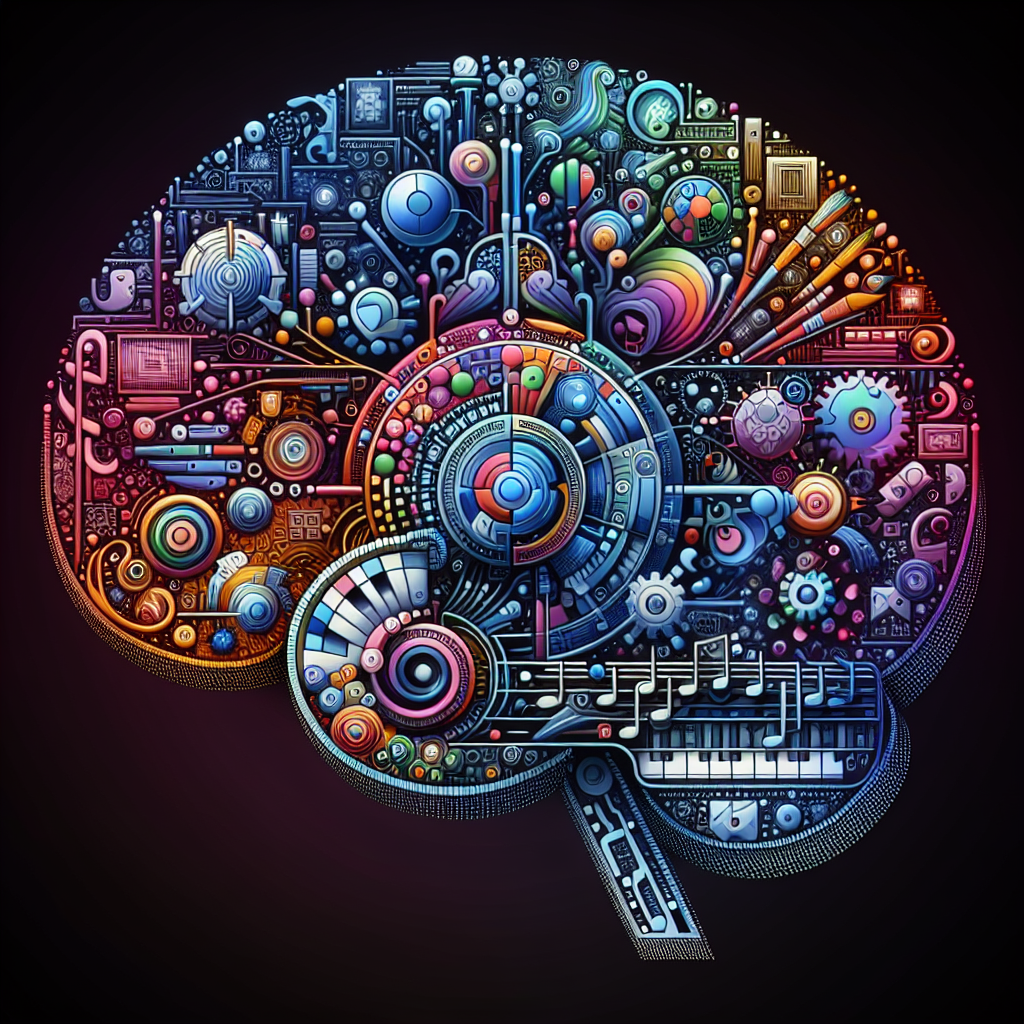Artificial Intelligence (AI) has been making significant advancements in various fields over the past few years, and one area that is seeing a rapid growth in AI development is creativity. AI has the potential to revolutionize the way we think about creativity and the possibilities are endless. From creating art to composing music, AI is showing that it can be a powerful tool in the hands of creatives.
One of the key strengths of AI when it comes to creativity is its ability to analyze vast amounts of data and identify patterns that humans may not be able to see. This can be particularly useful in fields such as music and art, where AI can help artists and musicians come up with new ideas or refine existing ones. For example, AI can analyze thousands of paintings and music compositions to identify common themes or styles, which can then be used to inspire new creations.
In the field of music, AI has already been used to compose music that is indistinguishable from that written by humans. Companies like Amper Music and Jukedeck are using AI algorithms to generate music for videos, commercials, and other projects. These AI-generated compositions are not only cost-effective, but they also save time for musicians and composers, allowing them to focus on other aspects of their work.
Similarly, in the field of visual arts, AI has been used to create stunning pieces of art that rival those created by humans. Google’s DeepDream project, for example, uses AI algorithms to generate psychedelic images that have captivated art enthusiasts around the world. AI has also been used to create realistic portraits and landscapes, demonstrating its potential to revolutionize the art world.
Another area where AI is making waves in creativity is in the field of storytelling. AI algorithms are being used to generate plotlines, characters, and dialogue for novels, movies, and video games. This has the potential to revolutionize the entertainment industry, as AI can help writers and filmmakers come up with fresh ideas and storylines that captivate audiences.
However, while AI has the potential to revolutionize creativity, there are also concerns about its impact on human creativity. Some fear that AI will replace human artists and musicians, leading to a homogenization of creative output. Others worry that AI-generated art and music lack the emotional depth and nuance that comes from human creativity. These concerns are valid, but it is important to remember that AI is a tool that can enhance human creativity, not replace it.
In fact, many artists and musicians are already embracing AI as a tool to enhance their creative process. By using AI algorithms to generate ideas or inspire new creations, artists and musicians are able to push the boundaries of their creativity and come up with innovative works that would not have been possible without AI. AI can also help artists and musicians reach new audiences and markets, opening up new opportunities for creative expression.
FAQs:
Q: Will AI replace human creativity?
A: While AI has the potential to enhance creativity, it is unlikely to replace human creativity entirely. Human creativity is complex and multidimensional, involving emotions, intuition, and personal experiences that cannot be replicated by AI. AI can be a powerful tool to inspire and assist human creativity, but it cannot replace the unique perspective and expression that comes from human creativity.
Q: How can AI be used in creativity?
A: AI can be used in creativity in a variety of ways, such as generating music compositions, creating art, and generating plotlines for stories. AI algorithms can analyze vast amounts of data to identify patterns and generate new ideas that can inspire artists and musicians. AI can also help artists and musicians streamline their creative process and reach new audiences.
Q: Is AI-generated art and music as good as human-created art and music?
A: The quality of AI-generated art and music can vary, but AI has shown that it can create stunning pieces of art and music that rival those created by humans. AI-generated art and music can be indistinguishable from human-created works, and in some cases, can even surpass them. However, the emotional depth and nuance that comes from human creativity cannot be replicated by AI.
Q: What are the potential drawbacks of using AI in creativity?
A: One potential drawback of using AI in creativity is the fear that AI will replace human artists and musicians, leading to a homogenization of creative output. There are also concerns that AI-generated art and music lack the emotional depth and nuance that comes from human creativity. It is important for artists and musicians to use AI as a tool to enhance their creativity, rather than relying on it entirely.
In conclusion, the potential of AI development in creativity is vast and promising. AI has the ability to revolutionize the way we think about creativity, inspiring new ideas and pushing the boundaries of what is possible. While there are concerns about the impact of AI on human creativity, it is important to remember that AI is a tool that can enhance human creativity, not replace it. By embracing AI as a tool to inspire and assist creativity, artists and musicians can unlock new possibilities and reach new heights in their creative endeavors.

